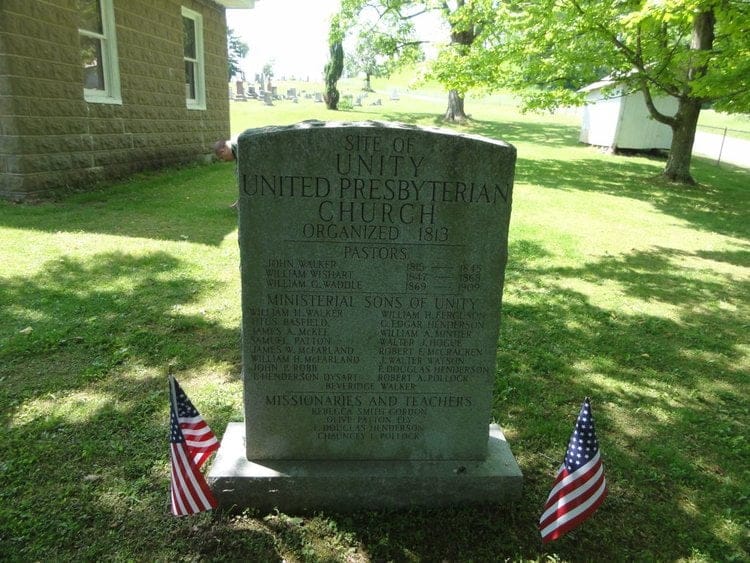“Do You Trust in Jesus?”
In his eulogy for Professor George Howe, the Rev. John L. Girardeau prefaced his comments with this fitting summary on the subject of Christian biography and eulogy:
“In doing honor to those who have attained to eminence, there is a tendency unduly to exalt the perfection of human nature, from the indulgence of which we are restrained by the principles of Christianity. It can never be forgotten by those who are imbued with its instructions and possessed of a consciousness illuminated by its light, that all men, even the greatest and best, are sinners; and that, whatever advancement in mere moral culture may be effected by the force of natural resolution, neither the beginning nor the development of holiness is possible without the application of the blood of atonement, and the operation of supernatural grace. To signalise, therefore, the virtues of a departed Christian is to celebrate the provisions of redemption, and to magnify the graces of the Holy Ghost.”
In other words, we write biographies of leading Christians and seek to preserve their papers—their writings and their correspondence—not to emulate them, for they were sinners just as we are, but to praise the God who worked through them, that future generations of believers might profit from their walk with the Lord.
George Howe was born at Dedham, Massachusetts on November 6, 1802. His father was William Howe, whose lineage ran back to one of the pilgrims who landed at Plymouth Rock. His mother was Mary (Gould) Howe, daughter of Major George and Rachel (Dwight) Gould.
When he was still quite young, George came across a copy of Cotton Mather’s Magnalia Christi Americana (The Glorious Works of Christ in America — vol. 1 of which can be read here.) among his father’s books. There he encountered Latin sentences peppered throughout the text, and so began his study of the Latin language. He pursued that study formally at Mr. Ford’s school in Dedham, and, as he later related, “said his hic, haec, hoc in his trundle-bed.”
At the age of twelve the family relocated to a town near Philadelphia. As a young teenager, he was able to attend First Presbyterian Church in the Northern Liberties of Philadelphia, where the Rev. Dr. James Patterson was pastor. It was Patterson’s habit to speak with every member of the family when he visited, and on one such occasion, he turned to George and asked George whether he had come to trust in the Lord Jesus Christ for his salvation. The question caused George a great deal of discomfort, but this brought him under conviction of his sin, and not long after he made a public profession of his faith there at First Presbyterian.
Graduating with first honors from Middlebury College, in Vermont, in 1822, George then entered Andover Theological Seminary, taking the full three year course of studies. Upon graduation, he was awarded the Abbott scholarship, which afforded him another year and half of study, after which he was appointed, at the age of twenty-seven, as Phillips Professor of Sacred Theology at Dartmouth College. This was during the presidency of the Rev. Dr. Bennett Tyler, who was closely tied with the troublesome New Haven Theology. At about the same time as Howe’s appointment, he was also ordained, on August 7, 1827.
For three years he served at this post, when his health was threatened with consumption (tuberculosis), and medical advice urged him to remove to the South. Rev. Howe soon sailed from Boston in a ship bound for Charleston, South Carolina, and he spent the month of December, 1830 in that city.
Providentially, it was about this same time that the Synod of South Carolina and Georgia met and took up a request from Dr. Thomas Goulding, asking for the appointment of a teacher of Greek and Hebrew. Dr. Goulding had only recently been appointed head of a new seminary in South Caroliina, and already the school needed another teacher. Rev. Howe’s reputation with the languages preceding him, he was elected to the post. Thus began Dr. Howe’s lengthy career of fifty-two years at the Columbia Theological Seminary. When the Seminary’s semi-centennial was observed at the end of 1881, Dr. Howe was there to celebrate the occasion, with many congratulations focused on his own central role in the establishment of the school. A year and a half later, he was gone, passed to his eternal reward, on April 15, 1883.
Dr. Howe did not write many books, but of the less than ten, several remain monumental works, to this day. In particular, his two volume magnum opus on The History of the Presbyterian Church in South Carolina is still required reading for anyone interested in the subject of religion in the Southern states. Print copies are rare, but the text can be found on the Web here [vol. 1] and here [vol. 2].
Words to Live By:
As George Howe lay near death, he expressed his desire to receive visits (despite his doctor’s wishes) from the other faculty of Columbia Seminary. One colleague asked him, “My dear brother, do you trust in Jesus?,” to which Dr. Howe readily answered, “Yes; what would I do, did I not trust in Him?”
What will you do, if you do not trust in the only Savior appointed for our salvation?
“And there is salvation in no one else; for there is no other name under heaven that has been given among men by which we must be saved.” (Acts 4:12, NASB)



![Rev. Samuel Davies [3 November 1723 - 4 February 1761]](https://thisday.pcahistory.org/wp-content/uploads/2012/04/DaviesSamuel.jpg)